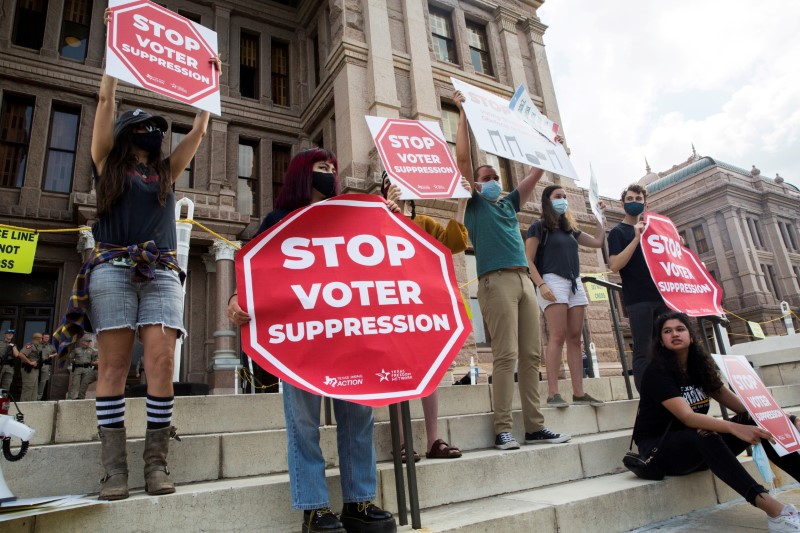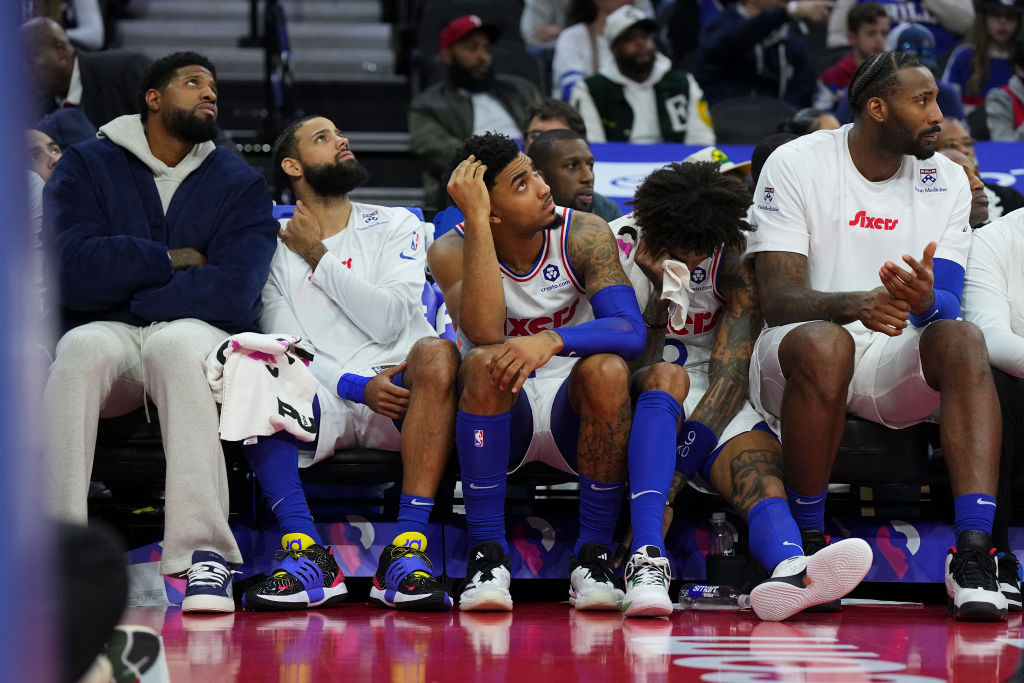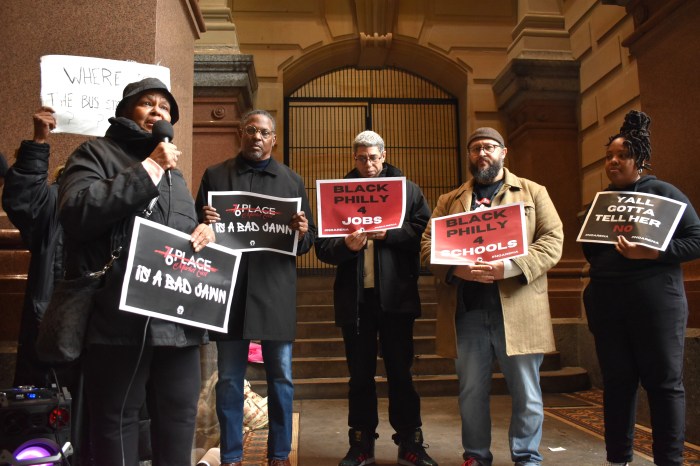By Richard Cowan
Senate Democrats scrambled to unite around a sweeping election reform bill they hope to begin debating next week, in the face of Republican opposition and moves by several states to pass laws placing new restrictions on voting.
Several Democrats expressed optimism over a compromise plan proposed by moderate Democratic Senator Joe Manchin, details of which were released on Wednesday.
“I am encouraged by these recent developments,” Senator Raphael Warnock of Georgia told reporters. Georgia is one of a half-dozen U.S. states that passed tough new controls on voting procedures this year.
Warnock said Manchin’s ideas were “very significant” because they could unite the 48 Senate Democrats and two independents, boosting chances for passing a bill.
It was not yet clear whether any Republicans would climb aboard, however. Under normal Senate rules, 60 votes are needed in the 100-member chamber to pass any measure.
A crucial test vote will be held on Tuesday on whatever bill Democrats agree upon in the next few days, Senate Majority Leader Chuck Schumer told reporters.
Democrats hope to get at least all of their 50 caucus members to vote yes on opening debate. That, however, would be 10 short of the senators needed to clear a first hurdle.
But 50 would demonstrate Democratic unity on one of their highest legislative priorities and could even encourage more in their party to join a move to scrap or alter the Senate’s rule requiring the 60-vote threshold to advance bills.
Senate Republican Leader Mitch McConnell on Thursday rejected the idea of compromise, saying “states, not the federal government, should decide how to run their own elections.”
Democrats argue that they also support state-run elections, but with minimum federal standards.
Republican-controlled state legislatures say new restrictions on voting are needed to improve election security following former President Donald Trump’s repeated claims that his election defeat was the result of widespread fraud.
Although multiple courts, state election officials and Trump’s own administration have rejected the claims as untrue and Trump has not produced any evidence, a sizable number of Republican voters believe him anyway, polls show.
Democrat Amy Klobuchar, who chairs a Senate committee overseeing election procedures in the United States, called Manchin’s compromise “a good faith effort.”
She stopped short of embracing it and instead said, “We’ll continue to work through his ideas.”
But she noted that Manchin’s plan contains key elements in a bill that has been pushed by Democratic leaders, including making “dark money” campaign contributions public and requiring that states give voters at least two weeks to cast their ballots in presidential and congressional elections.
Republican Senator Mike Lee said he believed the voting rights bill would hurt his party’s electoral chances: “This bill isn’t about strengthening democracy. This bill is about strengthening Democrats.”
The issue is urgent for Democrats, who hold razor-thin majorities in both houses of Congress after the 2020 elections. History and a once-a-decade redistricting process, based on the 2020 U.S. Census, favor Republicans’ chances of recapturing control of Congress in the 2022 midterm elections.
“If we don’t get this bill passed, our democratic system is on the line. Voting is fundamental,” said Democratic Senator Elizabeth Warren.
‘UNDER ASSAULT’
The flurry of state initiatives restricting voting is playing out in presidential election swing states, including Pennsylvania, Florida and Arizona.
“We’ve been tracking voting legislation for well over a decade and we have not seen a push this aggressive and intense before,” said Wendy Weiser, an elections expert at the non-partisan Brennan Center for Justice. “Voting rights are under assault.”
Senate Democrats’ drive for passage of the For the People bill approved by the House of Representatives in March hit a wall with Manchin’s opposition.
That sweeping measure would block many of the restrictions imposed by new state laws and require states to turn over the task of redrawing congressional districts to independent commissions.
Democrats’ backup plan could be an expanded version of another bill, named after the late civil rights leader and congressman John Lewis, that would omit some of the larger bill’s more sweeping changes, such as having commissions redraw congressional districts.
Reuters































